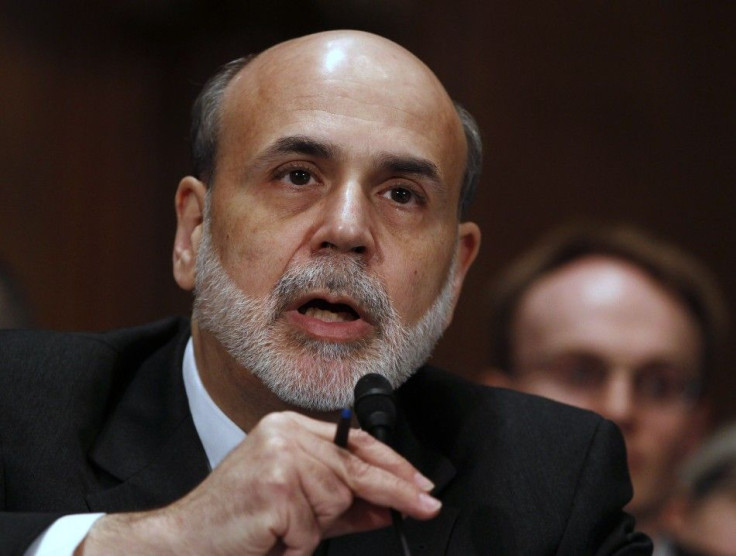Federal Reserve Press Conference: What’s the Key Issue?
COLUMN: On Wednesday, Federal Reserve Chairman Ben Bernanke is likely to be drilled on the most controversial view he holds, which is that inflation and rising commodities prices are not concerns.

Federal Reserve Press Conference: Background & Live Coverage
For the first time ever, Federal Reserve Chairman Ben Bernanke will hold a press conference on Wednesday after the Fed’s policy announcement.
The key issue is likely to be inflation.
Most of Bernanke’s views on the economy aren't that controversial. For example, most would agree with the following statements from the Fed’s March policy statement:
- the economic recovery is on a firmer footing
- overall conditions in the labor market appear to be improving gradually
- the unemployment rate remains elevated
- household spending and business investment in equipment and software continue to expand
- investment in nonresidential structures is still weak, and the housing sector continues to be depressed
- the recent increases in the prices of energy and other commodities are currently putting upward pressure on inflation
The statements many don’t agree with, however, is that “longer-term inflation expectations have remained stable” and the effects of rising commodities prices are “transitory.”
First, it’s dismissive to just brush off rising commodities prices as “transitory.”
This “transitory” phenomenon is clearly hurting consumer confidence and denting their wallets. It’s also an issue the Federal Reserve can easily fix by raising interest rates, which will cause the US dollar to appreciate and thus lower the cost of oil imports.
Second, it’s a stretch to call the commodities inflation “transitory.”
Oil prices have been rising for two years now. So have the price of other commodities like copper and steel. A big reason for their appreciation against the US dollar is the Federal Reserve’s loose monetary policy. These commodities may therefore keep rising until the Federal Reserve raises interest rates.
Third, long-term inflation expectation may not be stable.
Bernanke will probably point out that US Treasury yields don’t reflect any signs of unstable inflation expectations. However, the entire Treasuries market is grossly distorted by QE2, so it’s not a reliable gauge of the market’s expectations.
Meanwhile, the price of gold is at an all-time high and silver prices are nearing an all-time high. Gold and silver are considered alternative currencies.
The US dollar has also declined versus other paper currencies in 2011, driven by Asian central banks diversifying out of their dollar-denominated assets.
Practically speaking, inflation is simply the value of a currency versus other assets and goods. So far, the US dollar has already declined against other currencies and versus internationally-traded commodities as well, showing that US inflation expectations have not remained stable in the international space.
Domestically, consumer inflation is low only because consumer spending remains weak, not because of any confidence in the US dollar’s ability to store value.
Bernanke’s denial of inflation is not only controversial, but it’s also his justification for completing QE2 and delaying the tightening of interest rates.
This core ideological belief of his will likely receive considerable attention during the unprecedented press conference on Wednesday.
Click here to follow the IBTIMES Global Markets page on Facebook
© Copyright IBTimes 2024. All rights reserved.











